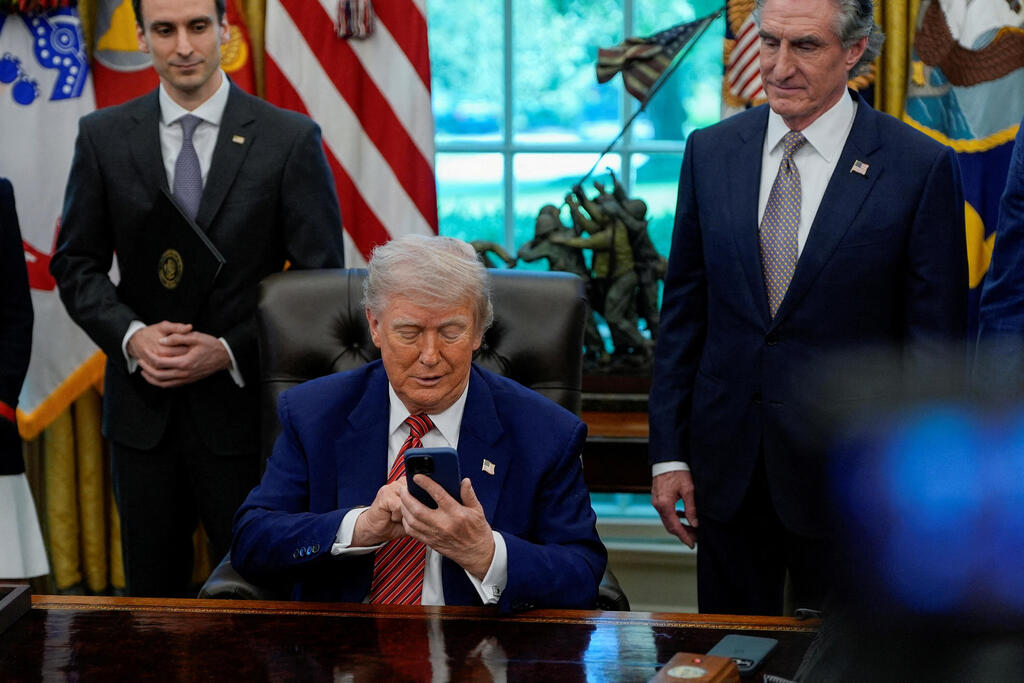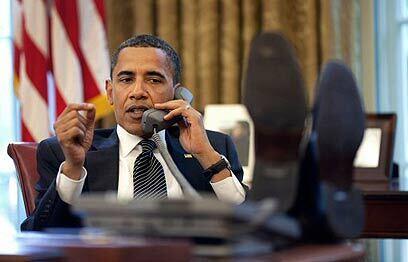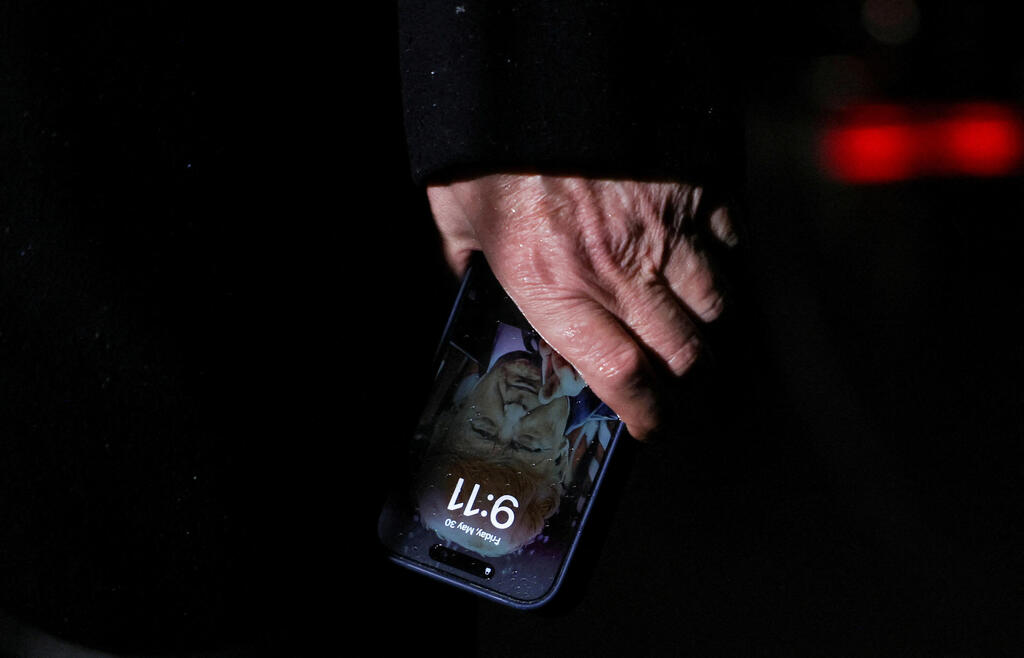After winning the 2008 election, President Barack Obama entered into protracted negotiations with the Secret Service and top security officials to retain his BlackBerry—then seen as the pinnacle of smartphone lore.
Eventually, a compromise was struck: Obama would be allowed to keep the device, albeit under strict limitations. Only a small, vetted circle of friends and advisers had access to his email address, and the phone itself was heavily modified for security. It could call just ten numbers, couldn't forward emails, and was blocked from receiving most incoming calls.
Eight years later, Donald Trump won the presidency. Security officials attempted similar negotiations—but largely failed. The modest restrictions they managed to impose during his first term would, in hindsight, seem like a remarkable success compared to the digital free-for-all that followed in his second. Today, anyone might be able to call the president of the United States—and there’s a very real chance he’ll answer.
For over a decade, Trump has been repeatedly warned about the major security risks of using his personal iPhone, whose number is known to hundreds. During his first term, senior staff like General John Kelly—his second chief of staff—tried to bring order to the chaos. Kelly and his aides would routinely confiscate Trump’s phone and store it in a box outside the Oval Office, in a scene that resembled teenagers hiding their parent's cigarette packs. But Trump was dismissive: “It’s not true—my phone is the best.”
The loudest phone in the world
To Trump, the phone—whether landline or mobile—has always been more than a device. It’s been a lifeline, a soapbox, a direct channel to the world. For decades, he sat in his New York office for hours, juggling real estate deals and impersonating a fictional spokesperson named “John Barron” to scold journalists over stories “his client Donald Trump” found unflattering. He once called into radio shows under the alias “Don McQueens” to complain about immigration policy.
Becoming president changed none of that. Friends, billionaires, celebrities, lawmakers, world leaders—even journalists—could reach him directly. And Trump would pick up, even if he didn’t recognize the number. When The Atlantic’s Ashley Parker and Michael Scherer dialed him cold, he answered immediately: “Who’s this?” According to aides, he especially enjoyed answering unknown numbers—it felt like a game.
A recent Reuters photo captured Trump’s iPhone lock screen, featuring a picture of himself pointing straight at the camera. Some staff say he carries two phones. Others insist it's three—one possibly used solely for social media.
One aide recalled, “I was on the line with him when he suddenly said, ‘I gotta go—someone from a foreign country is calling.’ He didn’t know which one. He just saw a foreign number and thought, maybe it’s someone worth talking to.”
'What Trump is doing is extremely dangerous'
Scott Adams, the pro-Trump creator of the Dilbert comic strip, recently shared a video in which he recounted ignoring a call from an unknown "number from Florida." Later, checking his voicemail, he heard: “This is your favorite president.” Adams recalled, “Did I just send the most important person in the world to voicemail?” Trump had left a long message and asked Adams to call back. “Now obviously I don’t call him back because that would be ridiculous. It was just a nice thing for him to say,” Adams said. A few hours later, the phone rang again. This time, Adams picked up—and sure enough, it was Trump.
Reports suggest that Trump often leaves detailed voicemails, and when he finally connects with someone, he’ll sometimes ask, “Did you play the message for your friends?”
One moment in the Oval Office summed it all up: Trump placed his iPhone beside two secure White House landlines. When it rang, he glanced at the screen. “Just a congressman,” he said. A moment later: “Now it’s another congressman.” An adviser remarked, “That’s his lifeline. He’s not giving it up. What can you do—take away the man’s smartphone?”
Get the Ynetnews app on your smartphone: Google Play: https://bit.ly/4eJ37pE | Apple App Store: https://bit.ly/3ZL7iNv
Joel Brenner, former head of U.S. counterintelligence, told The Atlantic: “Security protocols—at times cumbersome—exist for a reason. We run the risk of interception, we run the risk of impersonation, and we run the risk of being unprepared." What Trump is doing is "terribly dangerous,” he said.
One aide confirmed Trump’s iPhone had received additional security hardening. “He is not walking around with a run-of-the-mill iPhone off the shelf,” the advisor said. White House spokesman Steven Cheung declined to elaborate: “We will not discuss or disclose security measures regarding the President, especially to The Atlantic,” he added, referencing a previous incident involving a Signal chat leak that inadvertently exposed sensitive war planning discussions.




